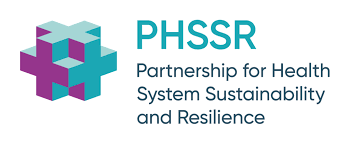تحت رعاية سموّ الشيخ خالد بن محمد بن زايد آل نهيان، ولي عهد أبوظبي رئيس المجلس التنفيذي لإمارة أبوظبي
Under the Patronage of His Highness Sheikh Khaled bin Mohamed bin Zayed Al Nahyan, Crown Prince of Abu Dhabi and Chairman of Abu Dhabi Executive Council
Demand for mental health treatment in UAE rises six-fold in three years
People in the Emirates are becoming more open and breaking barriers to seek medical help

The number of patients in the UAE seeking help for mental health problems increased at least six-fold in three years, World Health Organisation figures show.
Admissions for inpatient and outpatient mental health services soared between 2017 and 2020.
There were 12.09 inpatient admissions for mental health problems for every 100,000 of the population in the UAE in 2017. This rose to 71.65 for every 100,000 in 2020.
The coronavirus pandemic worsened many people’s mental health as they dealt with financial and relationship concerns, said Dr Haseeb Khan Rohilla, a specialist psychiatrist at the Priory Wellbeing Centre in Dubai and Abu Dhabi.
“Life is all about dealing with and managing stressors,” he said.
“However, when thoughts, emotions and behaviour feel like they are getting ‘out of control’, to the extent they are starting to affect relationships, work or overall sense of well-being, it is time to seek professional help.”
Experts said more people were seeking help because of greater awareness of mental health problems, a reduction in stigma, changes to drug laws and pressure from work, family and social media.
“There is more awareness now among people in the UAE that they should come forward and seek psychiatric help,” Dr Abdelazim Ali, a consultant psychiatrist at Maudsley Health in Abu Dhabi, told The National. “The other cause for the increased number, I think, is drug addiction, which has become a big problem.”
Speaking during Mental Health Awareness Month, Dr Ali said patients being admitted to hospital for mental health treatment usually suffer from psychosis, schizophrenia, self-harm, addiction or suicidal thoughts.
“They are usually in a state where they are at risk of harming themselves or other people,” he said.
A change in the law in 2016 meant that first-time drug offenders could be sent for treatment rather than being prosecuted.
This has led to an increase in the number of people admitted to hospital for addiction, said Dr Ali, with drugs such as crystal meth and cannabis often the trigger for mental health troubles.

Dr Haseeb Khan Rohilla, a specialist psychiatrist, says life is all about dealing with and managing stress. Photo: Haseeb Khan Rohilla
Mental health problems range from stress and anxiety to addiction and psychosis. Patients are usually admitted to the hospital if they pose a risk to themselves or other people, Dr Ali said.
“We have an inpatient facility at Alamal Hospital in Dubai. The addiction service is run by Maudsley there, where sometimes the court refers patients for assessment and treatment.
“In Abu Dhabi, we are only running outpatient services for addiction, and if the patient from Abu Dhabi needs admission, we refer them to the National Rehab Centre in Abu Dhabi or to the Maudsley unit in Alamal hospital in Dubai.”
Jacqui Lawson, a counselling psychologist for Insights Psychology in Dubai, said: “It is normal to feel occasional worry or nervousness, but if such feelings are excessive and prevent one from doing things, then it may signify a problem.
“Another sign that a person's mental health may be a problem is if one turns to unhelpful strategies, such as substance use or self-harm.
“A person may be admitted for inpatient mental health if they are considered to be vulnerable and if their safety may be at risk. They may be at risk of self-harm or at risk of carrying out suicidal thoughts. They require more intensive treatment and supervision than regular outpatient facilities can provide.”
Dr Ali, a former consultant psychiatrist in Britain’s National Health Service, said he has seen a growing number of women and girls being admitted for inpatient mental health treatment in the UAE.
Many female patients suffer from personality disorders and self-harm, he said.
“Most of them have been subjected to some kind of trauma in the past,” he said. “As a result of that, they have problems with their emotions and they can become very impulsive.”
Dr Ali said bullying on social media and pressure from family and work were also factors causing more people to suffer mental health problems.
The number of mental health workers employed in the UAE increased seven-fold between 2017 and 2020, the WHO said. These include psychiatrists, mental health nurses, psychologists, social workers and other specialised staff members such as occupational therapists.
There were 7.19 mental health workers for every 100,000 of the population in the UAE in 2017. This shot up to 50.29 for every 100,000 in 2020.
The total number of mental health professionals employed in 2020 was 4,914, including 3,777 mental health nurses, 414 psychiatrists and 282 psychologists.
Despite the increase, Dr Ali said mental health services were stretched and the number of patients waiting to see a psychologist was “quite high”.
“We are trying to recruit more people so we can reduce this waiting list,” he said.
The UAE adopted a national policy for the promotion of mental health in 2017. Objectives included increasing awareness of mental health and bolstering services, such as community outreach and home-based care.
Ms Lawson said she had seen a “definite increase” in the number of clinics opening and mental health workers being employed during her two decades in the UAE.
“As the UAE has become a busier and more competitive place, so too have the demands increased on many of its employees,” she said. “Not surprising, then, that stress levels have also increased and so, too, have anxiety and depression levels.”
There were 454.49 outpatient visits per 100,000 of the population in 2017. This soared to 2,975.6 visits per 100,000 in 2020.
The most effective way to deal with mental health problems is by spotting them early, Ms Lawson said.
“Recognising, acknowledging and accepting that one might have a problem is a crucial first step,” she said. “Don’t be afraid to seek help — admitting one has a problem is a sign of strength, not a sign of weakness.”
Strategies that can help people to maintain good mental health include talking to a friend or relative about worries, reducing time on social media, taking regular exercise, sleeping well and accepting that strong emotions are a normal part of being human.
Source: The National News






































